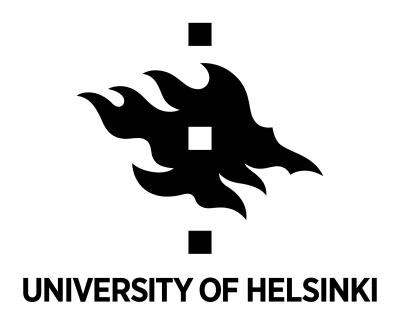
Master in Pharmaceutical Research, Development and Safety
University of Helsinki

Key Information
Campus location
Helsinki, Finland
Languages
English
Study format
On-Campus
Duration
2 years
Pace
Full time
Tuition fees
EUR 18,000 / per year *
Application deadline
Request info
Earliest start date
Aug 2024
* for non-EU/EEA students.
Introduction
How do we create the effective, safe and sustainable drug treatments of the future?
The Master’s Programme in Pharmaceutical Research, Development and Safety offers the opportunity to obtain a comprehensive overview of the life cycle of drugs and their use. The study program combines compulsory and optional courses with study tracks that focus on three possible subdisciplines: 1) drug discovery and pharmacology, 2) drug development and 3) medication safety and effectiveness. The programme combines research-oriented studies and high-quality pedagogical methods and integrates the perspective of Green and Sustainable Pharmacy into the curriculum, essential for managing the global sustainability challenge.
Upon graduating, you earn a degree in pharmaceutical sciences and gain expertise relevant to a wide range of careers in R&D and healthcare regulatory and management tasks in academia, pharmaceutical industry or the public sector (e.g. regulatory agencies). The programme is hosted by the Faculty of Pharmacy, University of Helsinki, an internationally recognised drug research institute.
Studying
The aim of the Master’s Programme in Pharmaceutical Research, Development and Safety is to provide a comprehensive overview of the life cycle of drugs and their use.
The academic activities in the personal study plan provide 120 credits (ECTS), equivalent to two years of full-time studying. The target degree earned by the studies is a Master of Science. In contrast to a degree programme yielding a Master in Pharmacy degree, this does not qualify for legalized healthcare professional status in the EU area. The courses are taught by an international faculty of world-class scientists in a research-oriented environment using state-of-the-art pedagogical methods and incorporate their cutting-edge research into the learning material.
Gallery
Ideal Students
Do you want to conduct multidisciplinary life science and health science studies as a scientifically vibrant academic community member? Do you have career goals e.g. in academia, the pharmaceutical industry or with public sector authorities? Are you interested in becoming a pharmaceutical sciences professional and seeking an education that is more research-oriented than the Master of Pharmacy degree? Then this programme might be something for you. If you seek an education yielding proficiency as a legalized healthcare professional, consider applying to the Master in Pharmacy programme instead.
A Bachelor's degree is a prerequisite for being eligible to apply. Applications are welcome from motivated and skilled candidates with a broad range of backgrounds, but the expectation is that the successful candidates have sufficient prior knowledge in pharmacy, chemistry or life science in order to complete the education in two years.
In 2022, up to 20 students will be enrolled in the programme.
Admissions
Curriculum
The scope of the Master’s Programme in Pharmaceutical Research, Development and Safety is 120 credits (ECTS), the equivalent of two years of full-time studying. The target degree earned by the studies is a Master of Science.
The two-year curriculum of the program starts with a core study module on drug development and use, common for all enrolled students. In addition, the first semester studies include courses for acquiring transferable academic skills as well as an induction to our research themes. The students are encouraged to take an active role in becoming oriented with the research that is carried out in the department right from the beginning of their studies.
Starting from the second semester, each student will conduct studies according to a personalised study plan. Guidance is available from a nominated faculty member acting as a supervisor throughout the studies. To assist in the tailoring of the elective elements of the curriculum, courses are organised under three study tracks:
1. Drug design and pharmacology
Goals of the study track:
- to understand the drug discovery process
- to acquire expertise in pharmacology and widely used screening and experimental models therein
- to understand drugability approaches; chemical (small/large/biological molecules) or physical of combined
- to understand research carried out at the cutting edge of drug design and pharmacology: immunotherapy, regenerative pharmacology and other topics within the therapy areas covered by the faculty's research activities.
2. Drug delivery and development
Goals of the study track:
- to understand the scope of absorption, distribution, metabolism, and excretion (ADME), pharmacokinetics and toxicology studies
- to understand research carried out at the cutting edge of drug delivery: nanomedicine and other topics related to the rational design of drug delivery mechanisms
- to understand the reasoning and the range of preclinical and clinical studies.
3. Medication safety & effectiveness
Goals of the study track:
- to understand the principles and methods of medication safety risk management and pharmacovigilance
- to understand principles and methods in effectiveness research and economic evaluation of pharmaceuticals and medication safety procedures in healthcare
- to understand principles and methods for applying real-world data (RWD) in medication safety and effectiveness research.
The student may also choose studies in an interdisciplinary manner according to her/his own interests. However, there will be only a certain amount of placements available at the different study tracks, and therefore, the placement according to the first preference of the student cannot be guaranteed at the time of applying to the Master’s Programme. The personal study plan may also include courses from other Master’s programmes at the University of Helsinki or studies conducted during an international exchange period.
Please note that this curriculum is tentative and subject to change.
Master's thesis
The aim of the master’s thesis is to develop skills for independent scientific work and critical evaluation of scientific data.
The master’s thesis in the programme consists of a literature review (10 credits) and a research project (30 credits) under the supervision of a principal investigator within the faculty.
In addition to the research groups operating in the faculty, students are encouraged to explore the possibility of finding their thesis project within our extensive collaborative networks or suggest a topic of research according to their own interests.
Research focus at the Faculty of Pharmacy
The research carried out in the Faculty of Pharmacy covers a wide range of aspects of drug discovery and use, from target identification to societal and economical aspects of pharmaceuticals.
The objectives of the research are to:
- identify new drug targets.
- create and develop new drugs.
- establish new drug administration methods.
- examine the pharmacokinetic and pharmacological properties of drugs.
- develop new technologies.
- explore social and economic issues involving drug therapy.
- educate leading professionals in the field.
Drug Research Program (DRP)
The Faculty's key research venture is the Drug Research Program (DRP), a unique multidisciplinary platform that combines research groups with expertise on different aspects of drug research; discovery, development, delivery as well as commercialisation, social and industrial pharmacy.
The Drug Research Program (DRP) accommodates several high-level research groups in the following focus areas:
- Bioactivity Screening
- Biopharmaceutics
- Cancer Unit for Research on Experimental Drugs
- Clinical Pharmacy
- Drug Delivery
- Nanomedicines and Biomedical Engineering
- Pharmaceutical Design and Discovery
- Pharmaceutical Biophysics
- Pharmaceutical and Analytical Technologies
- Regenerative Pharmacology
Student life and benefits
Student life and especially the student organisation culture is exceptionally rich and diverse in Finland. More than 250 student organisations operate within the Student Union of the University of Helsinki (HYY), ranging from faculty and subject organisations to political and societal organisations, and from choirs and orchestras to sports and game clubs. Their activities include anniversary celebrations, academic dinner parties, cultural events, get-togethers and excursions.
As a student and member of the Student Union (HYY), you are entitled to many benefits and services. For example, affordable student housing, low-cost sports services and student-priced meals. You also get numerous discounts, for example on public transport fees across the country.
Program Outcome
Why pharmaceutical research, development and safety?
The ageing population and the need for rapidly evolving medication solutions are factors that highlight the growing role and need of experts in pharmaceuticals, their use and regulatory processes in society.
In the Master’s Programme in Pharmaceutical Research, Development and Safety, you will:
- acquire a comprehensive overview of the life cycle of drugs and their use.
- obtain a unique perspective of Green and Sustainable Pharmacy as well as essential knowledge for managing the global sustainability challenge.
- be trained for research and development (R&D) oriented positions and as professionals for healthcare regulatory, management, policy-making and pharmaceutical industry positions.
- earn a Master of Science degree from a programme hosted by the Faculty of Pharmacy, a top-level drug research institute, with an extensive network of partners and considerable external research funding.
Please note that the degree earned in this programme does not qualify for legalized healthcare professional status in the EU area.
After completing the M.Sc. Degree in pharmaceutical research, development and safety, the students:
Knowledge
- have a thorough understanding on the life cycle of drugs and can apply their knowledge as experts in pharmaceutical research, development and use,
- have a command on pharmaceutical research questions in theoretical and methodological level,
- understand the roles of of different institutions and stakeholders in pharmaceutical development and pharmacotherapy,
- understand the sustainability aspects of drugs and their use and can apply this knowledge in their work.
Skills
- can formulate research questions and design ways to answer them in a scientifically solid manner,
- have a command of key research methods as well as the research-based work method,
- can conduct research work in an international and multidisciplinary environment,
- are fluent in communicating the pharmaceutical research topics with both peer experts and public audience,
- have developed a professional identity as experts in drug development and use and understand the potential of their expertise.
Program Tuition Fee
Career Opportunities
Our ageing population and the need for rapidly evolving medication solutions are factors that highlight the growing role of experts in Pharmaceuticals, their use and regulatory processes in society. In the Master’s Programme in Pharmaceutical Research, Development and Safety, you earn a degree in pharmaceutical sciences and gain the expertise for a future career in Finland or abroad within a wide range of research and development (R&D), healthcare regulatory and management tasks. The Career Services of the University of Helsinki offer a variety of means for gaining working life competencies and building professional networks already during your studies. You can also aim for an academic career by continuing onwards to a doctoral programme.
The programme trains students for research and development (R&D) oriented positions and as professionals for healthcare regulatory, management, policy-making and pharmaceutical industry positions.
These may comprise e.g., positions in:
- national and international regulatory agencies and policy-making organisations (e.g., EMA, Ministries for Health in different countries).
- professional or public health organisations (e.g., WHO regional offices).
- healthcare organisations (e.g., public or private hospitals).
- marketing, pharmacovigilance and outcomes research in the pharmaceutical industry.